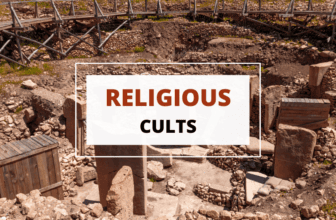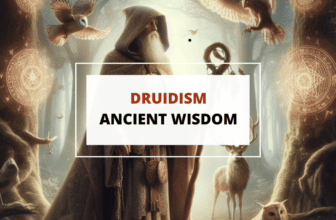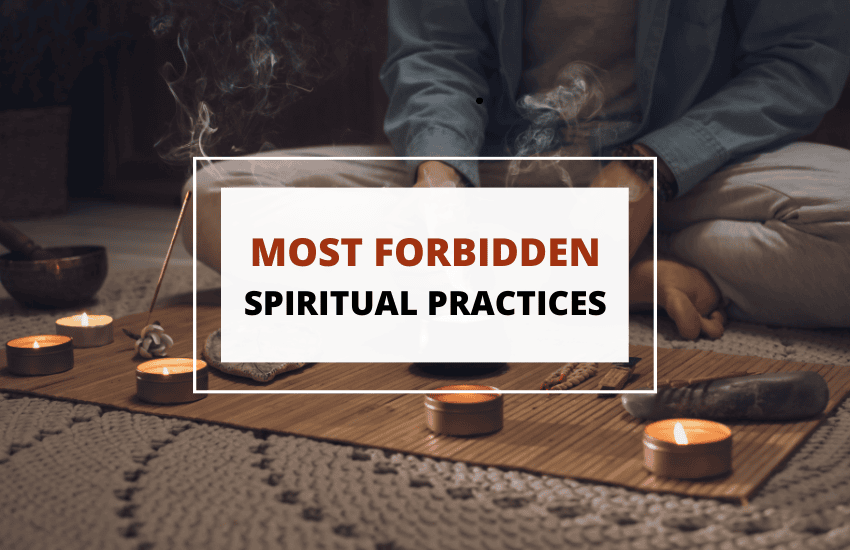
Throughout history, people have viewed certain spiritual practices as forbidden, often shrouding them in mystery and misunderstanding. Authorities ranging from ancient to modern times have banned, vilified, or simply feared these practices due to their associations with the supernatural, the occult, or their challenge to established norms.
Despite all this, many of these practices continue to exist. Here’s a look at five forbidden spiritual practices, their origins, purposes, and the reasons behind their taboo status.
Necromancy

Necromancy is often viewed with fear and dread, as it involves communicating with the dead to uncover hidden knowledge or predict the future. This ancient practice is based on the belief that the deceased can offer insights inaccessible to the living. Necromancy tests the boundaries between life and death by various methods of summoning the dead, leading to widespread condemnation by many religions and legal prohibition in numerous places.
The Christian Bible explicitly condemns necromancy as an abomination. For instance, Deuteronomy 18:10-12 mentions necromancy among other forbidden practices, stating that those who engage in these acts are detestable to the Lord.
Despite such strong opposition, necromancy has been a part of human culture for millennia, with references found in ancient texts like Homer’s “Odyssey.” Historically, the practice was more about connecting with the spirits of the deceased for guidance, rather than summoning or controlling demons.
Today, necromancy still appears in various spiritual practices and popular media, maintaining its reputation as one of the most forbidden and chilling spiritual practices.
Witchcraft
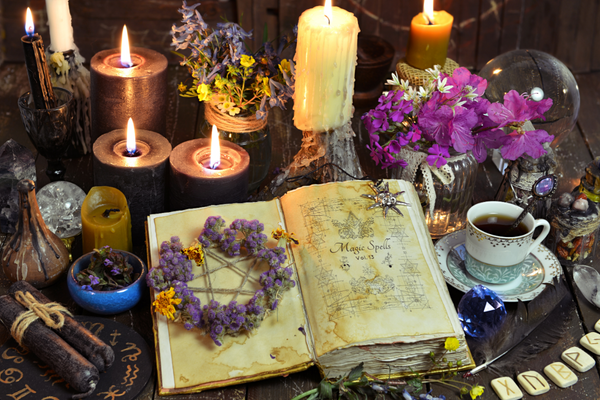
Witchcraft uses magical spells and rituals to alter natural events. It is often seen as sorcery and is viewed with suspicion and fear. Historically, it is one of the most vilified spiritual practices, with many of its practitioners facing severe persecution.
During the medieval period, accusations of witchcraft often led to execution, usually by burning at the stake. This was not just a European issue; witch hunts and severe punishments for alleged witches occurred worldwide, including in Africa, the Americas, and Asia. Various governments enacted laws against witchcraft, resulting in widespread persecution.
Today, modern witchcraft, or Wicca, aims to recast these practices in a positive light. Its practitioners focus on healing and beneficial magic, striving to separate the practice from its dark history. Despite these efforts, the troubled and forbidden past of witchcraft still shapes how it is perceived today.
Divination
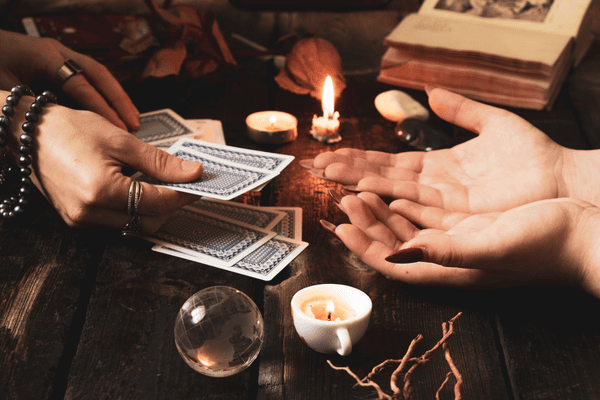
Divination involves various practices aimed at predicting the future and uncovering hidden truths. Many people are drawn to these methods, eager to see what the future holds. Popular techniques include tarot reading, astrology, and scrying, each attempting to forecast upcoming events.
However, divination is often viewed with suspicion and is explicitly forbidden in many religious traditions. For example, the Bible strongly condemns it, placing it alongside severe acts like child sacrifice. Specifically, Deuteronomy 18:10 lists divination among prohibited practices such as sorcery and fortune-telling.
Despite these religious and legal prohibitions, divination continues to thrive. In the modern digital age, online fortune-telling has experienced significant growth. Interestingly, a Pew Research Center study revealed that 25% of Americans, including 23% of Christians, believe in astrology. This continued popularity and acceptance of divination underscore its lasting appeal and the public’s ongoing fascination with the mysteries of the future.
Demonology
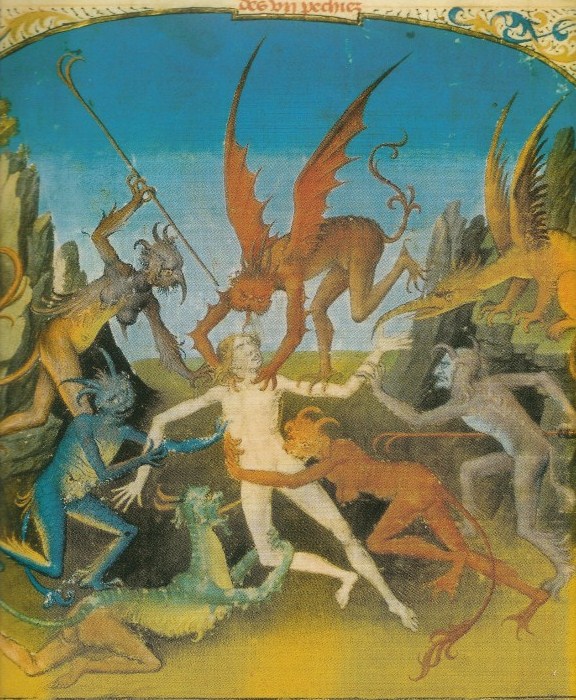
Humans have long been fascinated and terrified by demons and the concept of hell. This fascination has sustained the study of demonology through the centuries. Demonology is a systematic study of demons, focusing on their powers, categorizing them, and developing methods to summon and control them.
Practitioners believe that if harnessed correctly, demonic forces can be as beneficial as having a genie, similar to the story of Aladdin. However, critics argue that those who explore demonology, often seeking personal protection or power, risk crossing a dangerous line. This line blurs between controlling and being controlled by these dark entities.
Due to its association with malevolent forces and the inherent risks involved, many cultures and religions forbid demonology. They view it as a dark art with potentially dire consequences for those who delve too deeply into it.
Shamanism
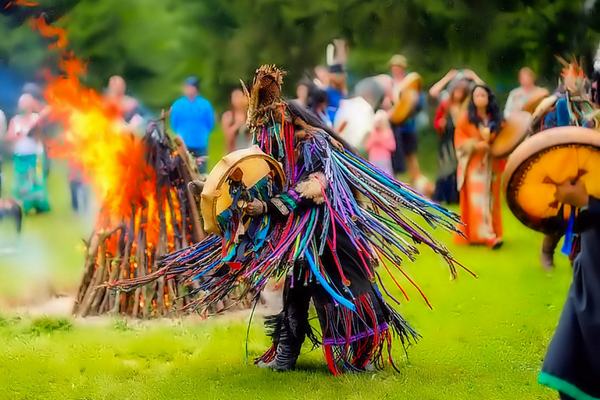
Shamanism is among the oldest spiritual practices known to humanity. It involves shamans who enter altered states of consciousness to connect with the spiritual world. In these states, shamans communicate with spirits to seek advice or help heal the sick, serving as spiritual mediators for their communities.
Historically, shamans have been crucial in providing guidance, facilitating healing, and conducting community rituals. Despite its ancient origins and significant cultural impact, colonial powers and modern governments have suppressed shamanism. They often banned it as a pagan practice, seeing it as a threat to established religious and social norms, and viewing it as contradictory to Western medical approaches.
Today, shamanism persists in the indigenous communities where it originated and attracts people worldwide who seek spiritual growth, healing, and personal exploration. This ongoing practice underscores its lasting significance and global appeal.
Wrapping Up
Exploring the five most forbidden spiritual practices reveals a world of taboo techniques that challenge societal norms and religious doctrines. These practices, shrouded in mystery and controversy, prompt us to question the limits of our understanding and the unseen forces shaping our spiritual landscape.





